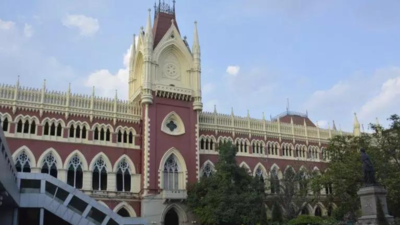ARTICLE AD BOX

KOLKATA: Three persons awarded death sentence for a murder and incarcerated for the past 11 years were acquitted on Thursday by Calcutta high court, which ruled that the prosecution had failed to conclusively establish their hand in the killing of a 28-year-old woman, whose mutilated body was found at Sealdah railway station in 2014.A division bench of justices Debangsu Basak and Md Shabbar Rashidi held that there was no evidence whatsoever to associate the three accused — the woman’s husband and two others — with the murder.No proof that any of 3 accused was near crime spot: HC Their presence at the scene of crime at the relevant time has not been proved convincingly, Calcutta HC held. On the morning of May 20, 2014, chopped body parts of Jayanti Deb were found in the parking area of Sealdah station, some wrapped in a quilt and some stuffed into a trolley bag.
Investigating the case, Govt Railway Police arrested her estranged husband Surojit Deb, his girlfriend Lipika Poddar and one Sanjoy Biswas.
Surojit and Lipika were accused of committing the murder and hiring Sanjoy to dispose of the body.Charges were framed against the three on April 21, 2015. In 2019, a Sealdah court found them guilty of murder, destruction of evidence and criminal conspiracy, and sentenced them to death.
The high court bench overturned the verdict. The HC observed that there was “overwhelming evidence” that Surojit had moved out of his marital home with his daughter much before the crime, and was living elsewhere with Lipika. There was absolutely no evidence that any of the three accused was in the vicinity of the crime spot around the date of the incident, the court said, acquitting all three. “The prosecution had hopelessly failed to bring home the charges levelled against the appellants at the trial, beyond all reasonable doubts sufficient enough to secure their conviction,” the bench stated.The trial court order was based on Sanjoy’s ‘confession’, which he later retracted.



.png)
.png)
.png)
















 3 hours ago
6
3 hours ago
6









 English (US) ·
English (US) ·